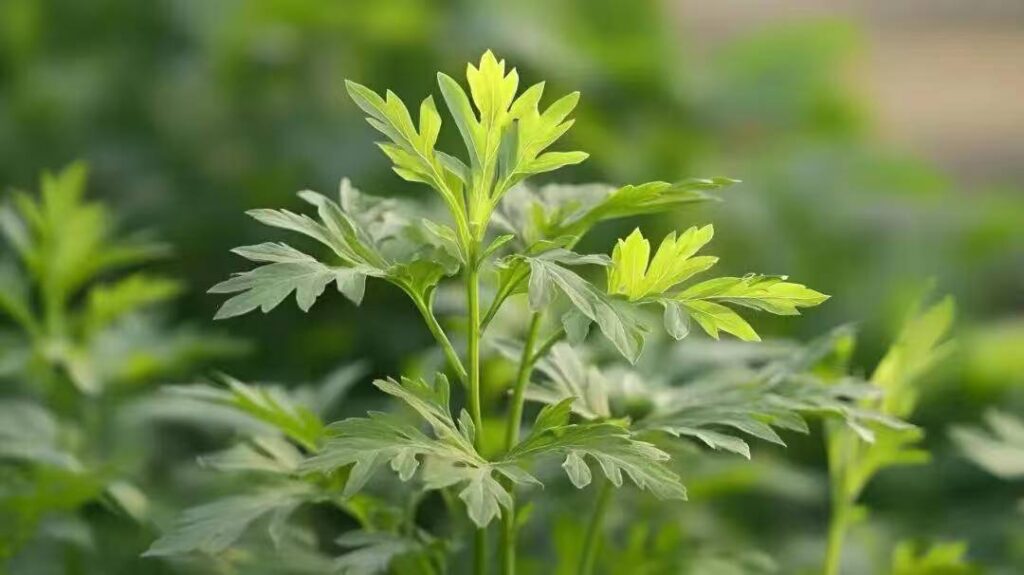During the Dragon Boat Festival, it’s a common sight in many Chinese homes to see bunches of mugwort hanging on doors and windows. This tradition is more than decorative—it reflects a blend of ancient beliefs, practical wisdom, and seasonal health practices. But why exactly has mugwort become a symbol of this holiday?
How Does Mugwort Symbolize Protection and Blessings?
In ancient times, the fifth lunar month—when the Dragon Boat Festival occurs—was regarded as an inauspicious period, often called the “month of poison.” Mugwort, with its sword-like leaves and upright stems, was believed to ward off evil spirits and malevolent energies. Some legends say mugwort was a divine gift, a plant bestowed by immortals to protect humanity.
Records such as the Jing Chu Suishiji (Chronicles of Seasonal Festivals in Jingchu) mention crafting human-shaped figures from mugwort to hang at the door as a form of spiritual safeguard. Beyond protection, mugwort also symbolizes good fortune: its pronunciation in Chinese (“ài”) resembles “love,” making it a heartfelt emblem of care and the wish for a safe and prosperous household.
How Does Mugwort Help with Insects and Disease Prevention?
Mugwort has long been valued in traditional Chinese medicine for its antibacterial and insect-repelling properties. Rich in volatile oils like eucalyptol and borneol, mugwort emits a distinctive aroma that naturally deters mosquitoes and pests. In the hot and humid days around the Dragon Boat Festival, when bacteria and insects thrive, hanging mugwort at home helped reduce the risk of disease outbreaks. It was not only a symbolic act but a practical one—combining health awareness with cultural custom.
Can Mugwort Truly Support Health During the Festival?
Yes, and not just by repelling pests. In traditional medicine, mugwort is known for its warming qualities. It’s believed to regulate qi, stop bleeding, and ease various ailments. The scent released by fresh mugwort when hung on doors is thought to purify the air, calm the body, and support respiratory health. During a time of year prone to dampness and illness, mugwort’s medicinal value reinforced its importance in daily life.
What Philosophical Beliefs Are Reflected in Hanging Mugwort?
The practice also mirrors traditional Chinese natural philosophy. The Dragon Boat Festival occurs near the summer solstice, when yang energy—the warm, active force—is at its peak. Mugwort, a plant associated with yang, was believed to strengthen positive energy in the home. When paired with calamus (another plant with similar symbolic properties), mugwort represented the balance of yin and yang, embodying the harmony between humans and nature—a key principle in Chinese medicine and cosmology.
Conclusion
Hanging mugwort during the Dragon Boat Festival isn’t merely a folk tradition; it’s a layered ritual steeped in symbolism, health wisdom, and seasonal awareness. From safeguarding the home and inviting blessings to promoting well-being and aligning with nature’s rhythm, mugwort embodies the spirit of a festival that honors life, heritage, and harmony.
